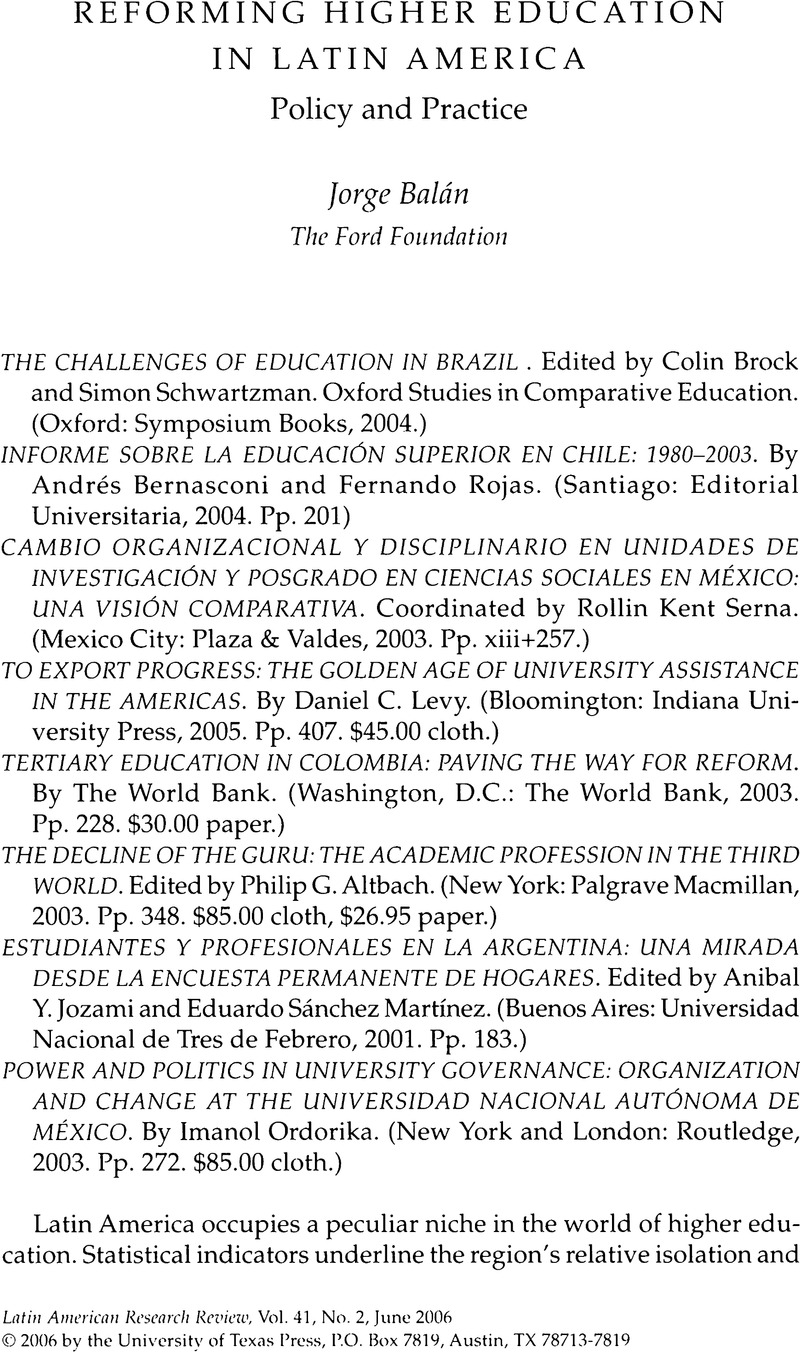Published online by Cambridge University Press: 05 October 2022

1. Todd M. Davis, Atlas of Student Mobility (New York: Institute of International Education, 2003).
2. Institute of Higher Education, Shanghai Jiao Tong University, “Academic Ranking of World Universities—2004,” http://ed.sjtu.edu.cn/rank/2004/2004Main.htm (accessed November 16, 2005).
3. Claudio de Moura Castro, Science and Technology: An IDB Strategy (Washington, D.C.: Inter-American Development Bank, 2001).
4. Carmen García Guadilla, Situación y principales dinámicas de transformación de la educación superior en América Latina (Caracas: Fundayacucho, 1997).
5. Mala Htun, Sex and the State: Abortion, Divorce, and the Family under Latin American Dictatorships and Democracies (Cambridge: Cambridge University Press, 2003), 79.
6. Simon Schwartzman, “The National Assessment of Courses in Brazil,” http://www.unc.edu/ppaq/Brazil_designed.html (accessed January 2006).
7. Burton R. Clark, Sustaining Change in Universities: Continuities in Case Studies and Concepts (United Kingdom: Open University Press, 2004).
8. See, for instance, Roberto Rodríguez-Gomez and Armando Alcántara, “Multilateral Agencies and Higher Education Reform in Latin America,” Journal of Education Policy, 16, no. 6 (2001): 507–25; Claudio de Moura Castro, “The World Bank Policies: Damned if You Do, Damned if You Don't,” Comparative Education, 38, no. 4 (November 2002): 387–99; Carlos A. Torres and Daniel Schugurensky, “The Political Economy of Higher Education in the Era of Neoliberal Globalization: Latin America in Comparative Perspective,” Higher Education, 43, no. 4 (June 2002): 429–55.
9. Rudolph Atcon, The Latin American University (Bogotá: ECO, 1966).
10. Constructing Knowledge Societies: New Challenges for Tertiary Education (Washington, D.C.: The World Bank, 2002).
11. Tor Halvorsen and Tom Skauge, “Constructing Knowledge Societies? The World Bank and the New Lending Policy for Tertiary Education,” Journal of Higher Education in Africa, 2, no. 3 (2004): 140.
12. Mauricio Cárdenas, “Economic Growth in Colombia: A Reversal of ‘Fortune‘?” Working paper, Center for International Development, Harvard University.
13. Philip G. Altbach, ed., The International Academic Profession: Portraits of Fourteen Countries (Princeton, NJ: The Carnegie Foundation for the Advancement of Teaching, 1996).